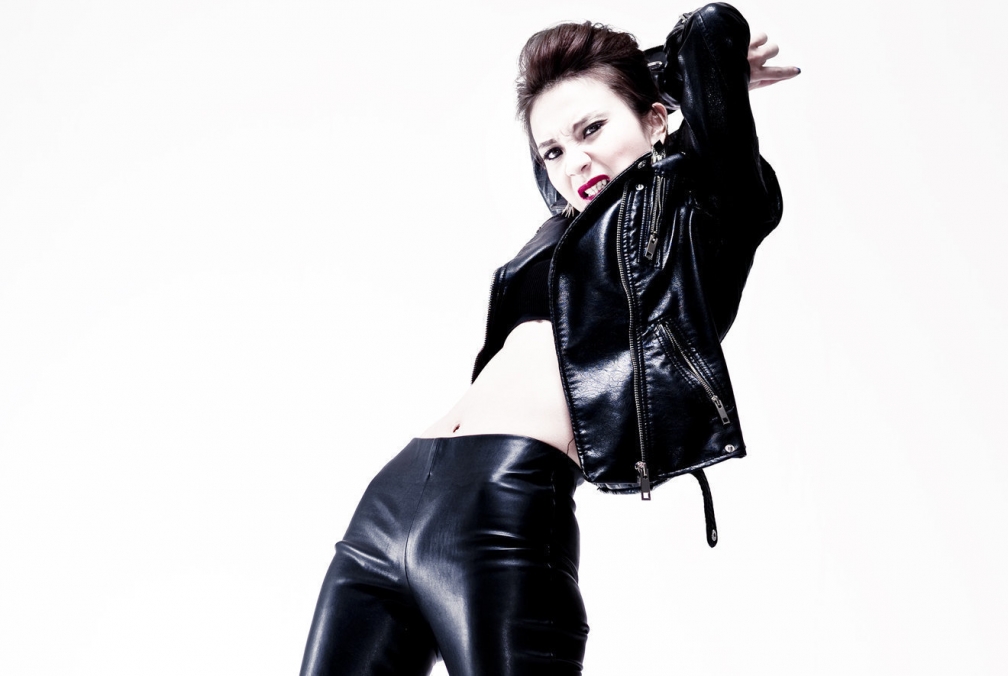
Cookie
GQ Magazine called her Asia's most beautiful DJ but there is a lot more to this talented Taiwanese DJ
Cookie is the kind of DJ that makes women proud and men swoon. Then you get to know her a little bit and suddenly it’s the women who are swooning and the men who are proud. In an industry where females are largely looked at as simply fuel for a market that is built upon and by masculinity, Cookie has emerged a polished DJ and producer with an elite ear who also happens to be blessed with a beautiful face.
But what separates her even further from the rest is that she’s done this in a culture where gender is even more divided than those that are in the center of the entire kerfuffle surrounding sexuality. Cookie was in fact one of the first female DJs on the small island of Taiwan over a decade ago when records shops on the isle Formosa were nearly non-existent and all the other girls were conforming to cultural expectations and quietly getting married.
Persistence paid off because now she regularly opens up for DJs like Armin Van Buuren, Paul Van Dyk and Diplo, and also spends her weekend’s jet setting around Asia and playing in its most illustrious clubs. So when GQ magazine called her Asia’s most beautiful DJ, it was a title that only complemented her finesse and fortunes when it comes to music and makes her a first class example of why sexism in the industry is nothing more than a tenfold cliché.
Mixmag Asia caught up with Cookie to talk about breaking out of Taiwan, what it’s like to be a girl and carry records and her side business where she teaches people how to DJ. She’s also put together an exclusive mix for your listening pleasure
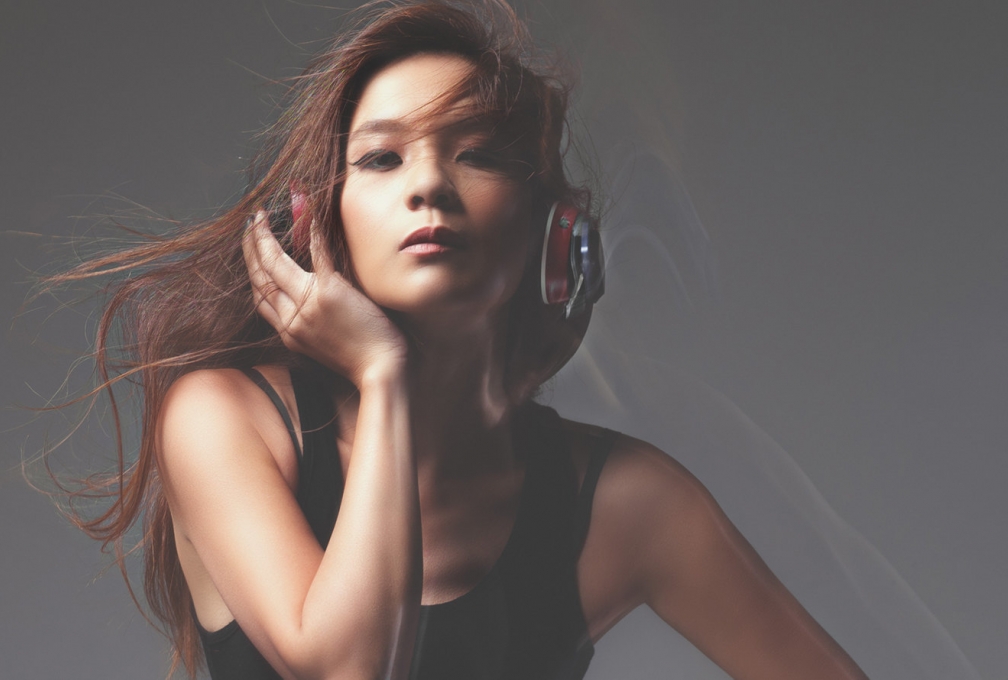
Taipei has a very small market for dance music that is hard to break out of. How did you overcome this and to what do you owe your regional success across Asia?
Right now, the Asian dance music market is hard for all local DJs but as for me, I just never gave up on what I was doing for the past 12 years. Across the country, I try to just be myself and it seems to impress people around the world.
You are one of Taiwan’s most experienced and established DJs. How have you seen Taiwan’s music industry change from the beginning until now and what do you think was the cause of the breakthrough that caught it up to the western world?
Taiwan’s information on music has always followed the western world and EDM has changed the marketing of music all over the globe so it’s been a natural progression. Taiwan’s market is growing faster and faster and there are so many more producers now.
Also, more and more club owners, promoters and brands have decided to book the world’s top DJs in Taiwan and while it’s good to push Taiwan into the international market, Taiwanese DJs have fewer chances to headline shows now. In my opinion, more emphasis should be placed on local DJs as they work hard and prepare well because these big events are good chances and good events for local DJs.
You’ve held residencies at various clubs and lounges over the years but also regularly play some of the biggest clubs and events around Asia. Which do you feel to be more fulfilling and which do you enjoy more?
What I enjoy the most is doing exactly what I am doing now, which is playing in different cities around Asia regardless of venue. I get to see different people and feel a different crowd each night.
What does the word club mean to you and how does it differ from a venue? How do you think the overall experience changes when you DJ at one over another?
Working in a club every night is like a being a machine and you see the same people come to the club all the time. Also, clubs need to always only play one style of music that’s just for clubbing people to drink to. Venues are different because people come to listen to the music that they enjoy and dance all night long.
Every time I DJ in other country, people are always different and you can feel the music culture is different too. Like when I go to China they put all their tables on the dance floor because local people like to sit at there tables and only dance nearby, which is totally different in other countries. It’s funny seeing stuff like that.
You’ve been known to take on students. Do you think deejaying is something that can be learned or is it sheer talent?
Deejaying and music can always be taught and the talent comes after. But more importantly, it’s a product of the heart. If you don’t have the heart to feel this, then you won’t learn no matter what.
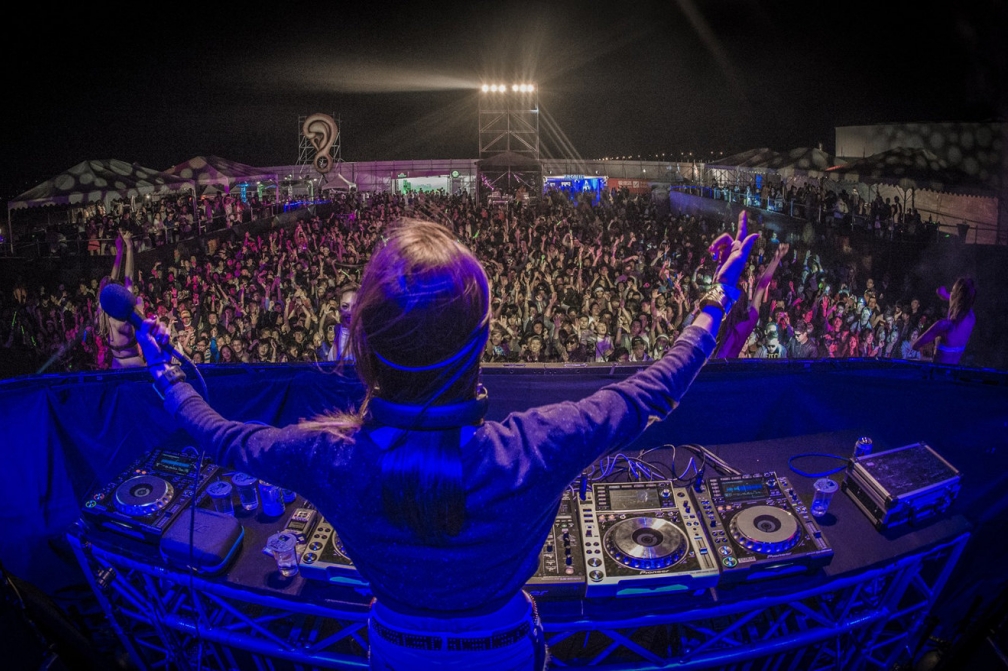
Some DJs rarely step foot into a studio but you spend a lot of time in yours. Why do you think making music and not just playing it is so important?
Right now you can’t only be deejaying because the world has changed and technology also changes so fast. If someone really wants to be a DJ it’s very easy but today if you want to be a professional DJ it isn’t as easy because you have to make your own music too. It’s a totally different feeling to play your own music than playing someone else’s music.
You have opened up for DJs like David Guetta, Deadmau5 and Tiesto. How would you say it differs to play alongside some of the biggest DJs in the world versus playing alongside local DJs?
When you open up for top DJs they always have rules you have to follow, like you can’t play any of their songs and you also must be able to keep the dance floor up. Actually it’s much harder to play this kind of event than a normal event with local DJs.
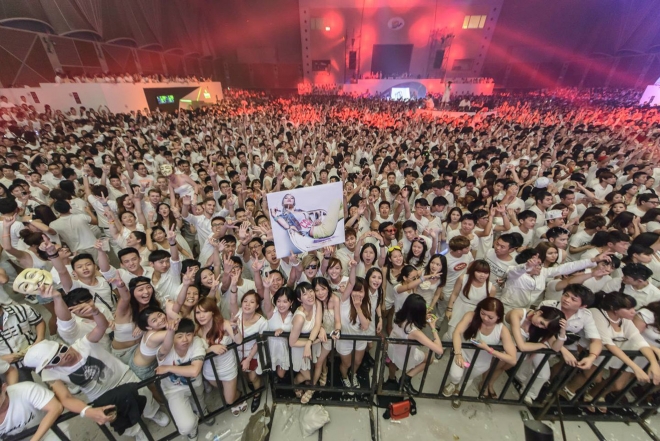
There are endless uproars about the role of women in a male dominated music industry but in Taiwanese culture the roles of men and women are differently defined than in the west. Do you feel that in Taiwan being a female DJ helps you, hinders you, or are gender roles less prevalent here?
When I started deejaying in Taiwan there were only three female DJs (including me) and all the other DJs were men. So when I began it was really tough because people were always watching and judging whether or not I was a real DJ or just a good looking girl on the outside.
Also twelve years ago DJs only played vinyl and Taiwan didn’t have too many places that sold vinyl so if I wanted to buy records, I always needed to pay a lot of money to buy online from the UK. Also, vinyl wasn’t easy for a woman to carry and men don’t like to help you carry it. I remember a long time ago I was wearing high heels and it was really hard to carry my vinyl on stage and I tried to ask a male DJ to help me and his response to me was if I can’t carry vinyl by myself then I will never be able to call myself a DJ. So it took all my energy to bring my vinyl box on stage.
So right now being a female DJ is much easier than before. For sure many people want to see a woman more than a man and of course it depends on how people look, but skills are obviously more important than what’s on the outside and that’s the only thing that is going to keep a DJ on stage in the future.
For most DJs in your position, this would be the peak of their career. Where do you want to see it go from here in the future?
Where I am at now isn’t the peak of my career and I hope other don’t think that too. Looking into the future, I want to be playing more of my own songs around Asia and getting into the rest of the world is my real goal.
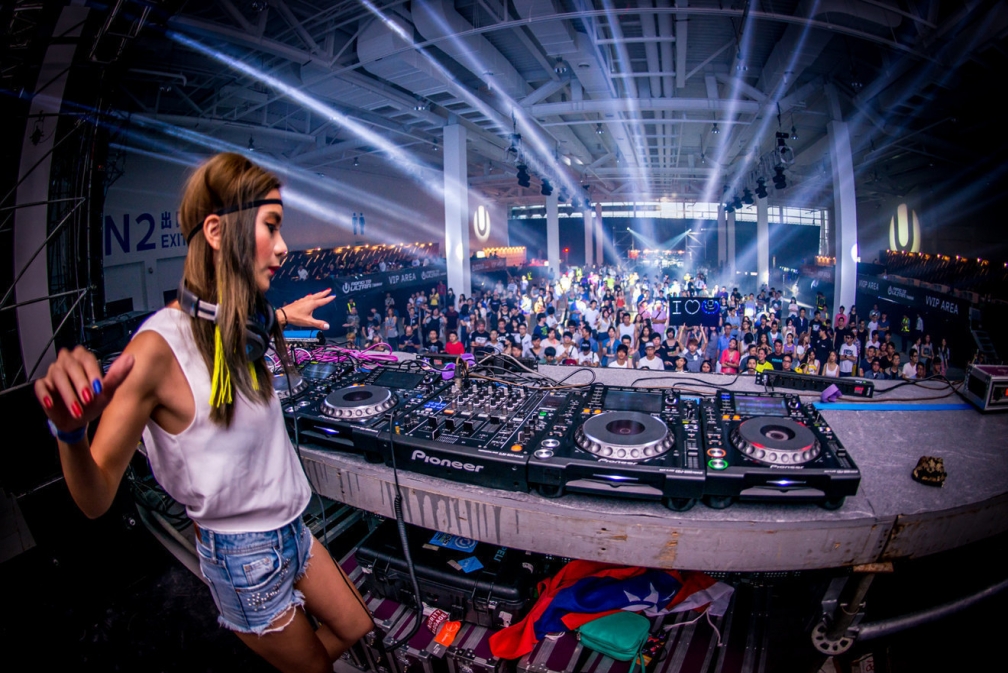
What five songs do you think you could play in your DJ sets forever?
Josh Wink – Higher State of Consciousness
Daft Punk –One More Time
Benny Benassi – Satisfaction
Kaskade – Empty Streets
…and of course my own songs.
What are your top three favorite clubs in Asia and what makes them special?
ageHa in Tokyo – This place shouldn’t be called a club, it should be called a venue. The inside is really big and they even have food areas just like at a festival.
Atom in Shibuya – The club has two floors and it’s in downtown Tokyo. It’s very easy to reach and the people inside are so friendly like family.
All the clubs in Taiwan – there isn’t just one best one, they are all special to me.


